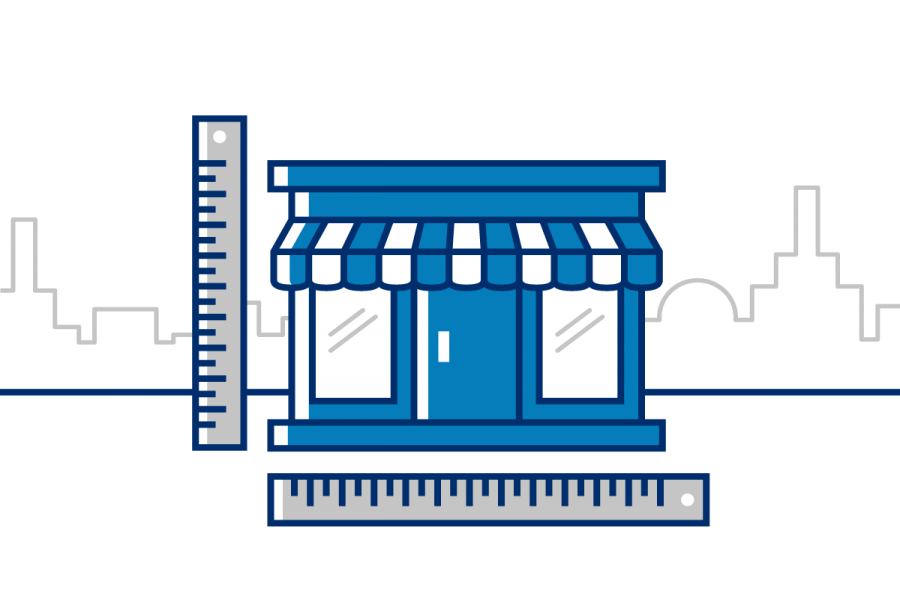In a state of full or partial lockdown, the idea of restarting economic activities is becoming the foremost concern. For countries like ours, it is the small businesses already bearing most the brunt of the pandemic that are likely to struggle hard to somehow survive.
It is difficult to perceive how things will be like in the post-Covid-19 time. All we can imagine, it will be radically different. The way we work has been entirely turned upside down within a month. The good thing is that digitisation has realised its promise, technology has realised its potential. But the dark underbelly of this is the number of jobs that will be lost. The International Labour Office has estimated that almost 25 million jobs could be in jeopardy as a result of Covid-19.
The most vulnerable across the world are on the line due to this virus: the elderly, the poor, and those without access to health care. While this comes to mind first because lives and living matter, the crux of the problem rests with the myriad ways micro, small and medium-sized enterprises (MSMEs) that feed more than 80 per cent of the population in poor countries are going to be hit. Governments across the world are scrambling to put in place mitigation policies to both stem the invasiveness of the virus and shore up the MSMEs.
This is now a global problem that only a global solution with local flavours can fix. Despite the instinct to pull back on development cooperation and global investment in the post Covid-19 period, there is the critical need to support the MSME ecosystem and use trade policy as an engine for good rather than an instrument of protectionism.
The coronavirus pandemic has forced nearly one-third of the world's population into lockdown. Everyone agrees that governments need to act fast to save lives first, as well as reduce the adverse impact such measures can have on their economies. Economists and experts around the world are therefore looking at policy mixes and miracle recipes to reduce the economic impact of the pandemic. While the discussion often leans towards the macroeconomic impact of this pandemic storm and governments' role, everyone knows that governments do not buy or sell goods overseas, companies do. The Covid-19-induced slowdown affects the real economy, which is, after all, made up of businesses and the people that work for them. Small companies are likely to suffer more than others in the private sector because they are inherently vulnerable.
Experts have opined that to help micro, small and medium-sized enterprises, we must understand the way small businesses are likely to face the crisis which according to some will take the shape of a whole cycle of impacts. What they have observed are not new, but the important fact is the understanding of the way small businesses are affected in different regions (countries) in each cycle. Broadly, the cycle comprises -- lockdown impacts, supply chain disruptions, demand depression, and finally attempts for recovery.
Lockdown impacts are affecting countries and regions where the pandemic led to partial or complete shut-down of the economy by government decrees. Containment measures have hit hard informal businesses and rural economy in poor countries on which a majority of the population depend for subsistence. Supply chain disruptions are affecting companies around the world. There are two reasons. First, the pandemic shock in China affected that country's production and exports. Second, the same phenomenon is occurring in other regions, including Europe and North America. As production halts in affected regions, it reduces the inputs available for global value chains that source from them. The extent of this trade-induced shortage of inputs will differ by value chain and country. Demand depression is experienced in pandemic-affected countries in terms of lower sales. Consumers and business buyers have cut on purchases, especially products that are not immediately essential. Even in countries relatively unaffected by Covid-19, MSMEs that supply to overseas buyers are finding their orders slashed - as affected businesses and consumers overseas reduce their demand. Finally. recovery will begin once the health emergency is over, and containment of people comes to an end. Indeed, economic activity is likely to see a rebound, as people go back to their small businesses. Manufacturing and agricultural businesses may have higher sales as inventories are restocked and consumers make postponed purchases.
Experts, however, feel that the broadly framed cycle may not be the same everywhere, and as such it may be rather simplistic to think that businesses, particularly small businesses, will undertake similar journeys. It is here that governments have to take note how they negotiate the rough seas, and the problems they confront, which in all possibility will call for not only reactive but innovative and proactive policies and actions. As for ourselves, the task is highly challenging given the resource constraints. Still, keeping a watchful eye may be helpful in devising ways out.


